Input VAT That Cannot Be Reclaimed
A VAT-registered business can reclaim the VAT that it incurs on business expenses. Most businesses expect to be able to reclaim all the VAT that they incur on expenditure. There are, however, a number of exceptions to this general rule.
The main types of VAT that cannot be reclaimed are:
- VAT incurred overseas
- “blocked” Input tax
- VAT on private or non-business expenditure
- VAT that relates to exempt supplies.
VAT incurred overseas
VAT can only be reclaimed if it is incurred in the UK. VAT incurred overseas is non-deductible. It may, however, be possible to reclaim the VAT incurred in an overseas jurisdiction from the tax authority overseas. For example, VAT incurred in Germany can be reclaimed from the German tax authorities. There are particular rules regarding the VAT that can be reclaimed and each country’s rules differ. There are agencies that will make a claim for the business if assistance is needed. Some countries do not provide VAT refunds to overseas businesses (such as New Zealand) and some countries do not have a VAT system (for example, the USA). The overseas VAT that is most frequently claimed reclaimed is incurred in EU countries. The EU provides guidance on the procedures to make a reclaim.
HMRC has also issued guidance in respect of making claims for VAT incurred in the EU. Claims by Northern Ireland businesses for VAT incurred in the EU differs and the Northern Ireland business must use the electronic form to make a claim and further guidance is available here.
Blocked input tax
HMRC has blocked businesses from reclaiming VAT on certain types of expenditure. This includes:
- cars
- certain building materials
- items sold under a margin scheme and other schemes
- business entertainment
- domestic accommodation.
Cars
VAT is usually not reclaimable on the purchase of a car unless the business is a car dealer, taxi business or driving school. When, however, a car is used exclusively in the business and is unavailable for private use the VAT on the purchase can be reclaimed. This can be a high bar to pass, as it is necessary to ensure that private use is not possible, the car is kept at the business premises overnight and that the car is insured for business purposes only.
50% of the VAT incurred on a car that is leased or hired is reclaimable, but not on lease purchase or hire purchase agreements.
The VAT incurred on repairs and maintenance of a car used in business can be reclaimed in full.
VAT incurred on petrol or diesel costs can be reclaimed in full where the VAT fuel scale charge is applied. The fuel scale charge does not need to be applied where the VAT reclaimed only on fuel purchased for business use and not private use. HMRC will expect detailed mileage records to be kept.
HMRC provides detailed guidance on motoring expenses in a public notice.
Building materials
VAT cannot be reclaimed on certain materials used in the construction of new residential buildings that are supplied as a zero-rated sale or on a long-lease. This block of input tax is to prevent VAT being claimed on non-essential items or luxury items (such as TV sets) being included in a property that then benefits from a zero-rated supply. Specifically excluded are finished or prefabricated furniture other than furniture designed to be fitted in a kitchen. Also blocked is the input tax on materials to construct this fitted furniture. VAT cannot be reclaimed on electrical or gas appliances other than those that provide space heating or water heating. VAT also cannot be claimed on carpets or carpeting materials. A public notice has been published regarding building and construction.
Margin and other schemes
There are a number of VAT accounting schemes, such as the margin schemes for second hand goods, the flat rate scheme and the Tour Operators scheme. VAT is not reclaimable on most expenditure for items within these schemes. Where a business is using any of these schemes further advice should be sought.
Business entertainment
VAT incurred on business entertainment is not reclaimable by the business providing the entertainment. Where hospitality is provided to guests, who are not employees, the VAT cannot be reclaimed. This includes product launches, presentations and other guest entertainments. HMRC regards entertainment to be the provision of food and drink, accommodation, entertainments, etc. Where there is a business purposes, such as advertising, the element relating to the non-entertainment business purpose can be reclaimed. It should be noted, however, that the entertainment of overseas customers is not blocked, the VAT incurred can be reclaimed.
VAT on entertainment expenses can usually be reclaimed when staff are entertained. Where guests are entertained at the staff party (such as spouses or partners of staff) the input tax incurred has to be apportioned between the staff and non-staff expenditure. Where the non-staff members are charged a fee for attending, VAT on this fee has to be accounted for to HMRC, but then all input tax can be reclaimed.
HMRC has issued guidance in a public notice regarding business entertainment.
Domestic accommodation
VAT cannot be reclaimed on the cost of providing accommodation for company directors. Accommodation provided to sole proprietors or partners in a business is regarded as non-business expenditure and cannot be reclaimed. VAT can be reclaimed where the domestic accommodation is provided to employees and this accommodation is necessary for their employment duties.
Private or non-business expenditure
When expenditure has a mixed business and private/non-business purpose, the related VAT should generally be apportioned and only the business element claimed. When goods on which input tax has been claimed (such as an item of stock) are subsequently put to private or non-business use, there is a deemed supply for VAT purposes. Output tax is due on the cost of the supply to account for this private or non-business use.
Capital items, such as land, buildings, civil engineering works, computers, aircraft, boats, and other vessels which are purchased on or after 1 January 2011 are subject to an input tax adjustment to reflect actual use of the item over a period of years. This is called the capital goods scheme. This is discussed below.
Exempt supplies
Where a business makes exempt supplies, it cannot reclaim all of its input tax (subject to a de minimis limit). An exempt supply is a supply that is not subject to VAT but where VAT cannot be reclaimed on expenses relating to the supply. This includes direct costs and a proportion of overhead expenses.
Often businesses do not recognise that they have made exempt supplies. Common exempt supplies include:
- many property transactions, both sales and lettings
- insurance
- betting, gaming and lotteries
- finance, including interest charges
- education
- health and welfare
- some sports activities
- some charitable and cultural activities.
It is important for the business to ensure that the supply it makes does fall within the exemption, otherwise VAT will need to be charged (although this does mean that VAT on expenses can be reclaimed).
The input tax that cannot be claimed is any VAT on expenses that can be directly attributed to the exempt supply, plus a proportion of the input tax on overheads, the input tax that is incurred for both taxable and exempt supplies. The standard method of determining this apportionment is to multiply the VAT incurred on overheads by the value of the taxable supplies made in the period, divided by the value of the total supplies made. This gives the amount of VAT incurred on overheads that can be reclaimed, the balance cannot be reclaimed.
For example, a business incurs £1,000 of VAT on overheads, that is incurred for both taxable and exempt supplies. It makes taxable supplies in the period of £90,000 (excluding VAT). Total supplies made were £100,000. This means that the business can reclaim:
£1,000 X £90,000/£100,000 = £900.
£100 has to be restricted along with any VAT that is directly attributable to the exempt supplies made.
This claim for VAT is regarded as a provisional claim for the period. The business is also required to make an annual adjustment in respect of their annual input tax and annual supplies to help even out any seasonal supplies.
Where the input tax that relates to exempt supplies is less than the de minimis limit, all the VAT can be reclaimed. The de minimis limit is not more than £625 per month on average during the period or tax year, and not more than 50 per cent of total input tax in the relevant period.
Where this standard method does not give a fair and reasonable result the business may apply to HMRC to use a special method. Also, where a fair result is not obtained an override notice may be issued by HMRC to alter the method of VAT recovery.
Input tax recovery for an exempt business is complex and a business may be advised to seek professional advice. HMRC has issued a public notice in respect of partial exemption.
Capital goods scheme
Where capital items are used for exempt purposes, or partly for exempt purposes, or for private purposes, it is necessary to adjust the VAT incurred over a period of years to reflect the use of the asset over these years. This is called the capital goods scheme.
Assets included in the scheme are:
- land, buildings and civil engineering work costing more than £250,000
- computers and computer equipment costing more than £50,000
- aircraft, ships, boats or other vessels costing more than £50,000.
The VAT is adjusted over five years for computers, aircraft, ships and boats and ten years for real property.
HMRC has published a public notice in respect of the capital goods scheme.
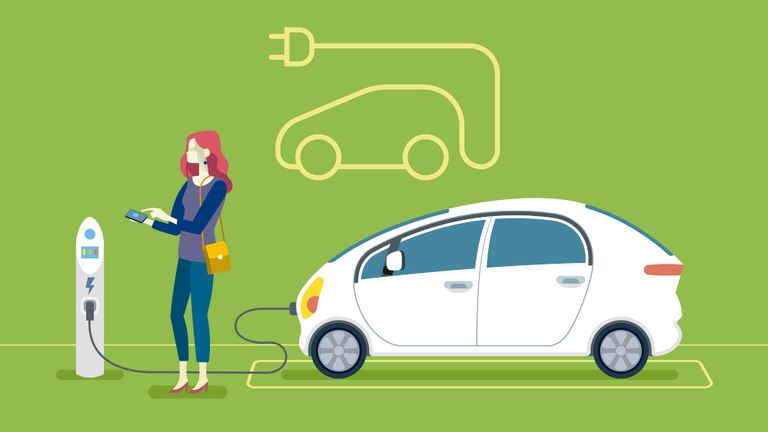
Company Car Benefit – It’s “Electrifying”!!
Traditionally, having a company car has meant having to pay a lot of tax especially when the car is a prestigious one. Having a company car is a form of benefit in kind. However, it may be possible and worthwhile to purchase a company car, or to be more precise, an electric company car and not pay too much tax!
The benefit in kind is calculated at 2% of the P11D value (ie list price of the car including VAT, options and the delivery fee) for the tax year 2022/2023. This will go up to 2% for the following tax year. The benefit in kind for petrol cars is based on it’s CO2 emission value and starts at 15%! Also, a fully electric company car is exempt from Vehicle Excise Duty (Road Tax).
Also, the company can claim a 100% capital allowance on the cost of the electric car through it’s corporation tax return. The company can also claim a 100% capital allowance on the installation costs of electric charge points. This means the whole cost can be deducted from the profits made by the company in the year.
So what about plug in hybrids (or PHEVs)? Well, a bit like petrol and diesel cars the benefit in kind is derived from their CO2 emissions but also, unlike petrol and diesel, how far they can travel (their range) when in full electric mode. The benefit in kind is still cheaper than petrol or diesel.
If you would like to discuss further then feel free to contact us.
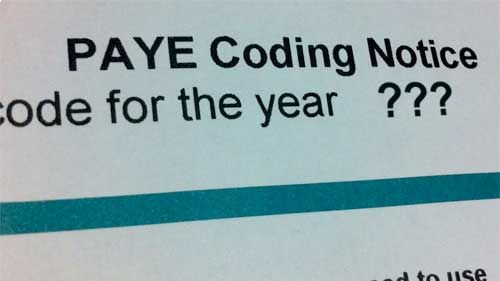
Tax Codes - Explained
When you get your payslip have you ever wondered what the weird numbers and letters are in the box labelled “tax code”? Put simply, if you are an employee or receive a private pension then this code informs the employer or pension provider how much tax to deduct from your gross salary or pension.
So what does the code actually mean? Well, let’s assume that you only work for one employer, have no benefits in kind (such as a company car) and you earn under £100,000, then your tax code is 1257L. If you put a “0” at the end of the number, you get £12,570. This is your tax-free earnings on which you pay no tax for the year (also called your personal allowance). You can increase this allowance if you, for example, have been working from home. The allowance can also decrease if you received any perks in addition to your salary such as private health insurance or a company car.
The letter at the end shows how your personal allowance is affected as a result of your situation. Let’s take a few of the common letters:
L
Basically, you’ll get the personal allowance.
BR
No tax-free allowance is available to you and so you would have 20% tax deducted on the whole of your gross salary. This is usually used if you have a second job or pension where it is assumed that the whole of your personal allowance is used up in your first or main job.
0T
All your income is taxed in line with the income tax bands. This is usually the case where your employer does not have enough information about your previous employment or you earn more than £125,140.
D0/D1
Commonly used for a second job or pension and it means that all your salary is taxed at 40%/45%.
K
You usually get this when you have other income that isn’t being taxed through the payroll and it is more than the personal allowance.
W1, M1 or X
These are emergency tax codes and they follow on from the usual tax code (eg. 1257L M1). This usually happens where there is a delay in HMRC receiving information regarding a change in your circumstances such as starting a new job.
You should check if your tax code is correct as there are millions of errors! You should check especially if your circumstances change such as starting a new job.
If you have overpaid tax then you would need to contact H M Revenue & Customs (HMRC). You can either call them or use your online personal tax account.
Once you have amended your tax code HMRC will issue your employer with a revised tax code and any tax you overpaid will be paid back to in the next payroll run. If, however, the error relates to a previous year then you can fill in a P800, claim online or HMRC may send you a cheque in the post. You may be able to go back up to four years to claim any overpaid tax.
If you have underpaid tax then you would need to pay it back. You may be able to agree a payment plan with HMRC if you can’t afford to pay the tax in one go. However, if the underpayment wasn’t your fault then you may not need to pay the tax. For example, if your employer entered the wrong tax code on the payroll system then HMRC should recover the tax from your employer first.
If you need further help or advice then please contact us.
Capital Gains Tax - Property
If you hold a property to rent out and it is not your main residence (ie. an investment property), when you come to sell it, you will usually need to pay capital gains tax (CGT). The rate of tax you pay is 18% for basic rate taxpayers and 28% for higher rate taxpayers.
Once you have worked out the capital gain, you can deduct the annual CGT allowance from it. This is £12,300 for the tax year 2022/23. This allowance is doubled for couples who jointly own the investment property, thus, giving an overall tax-free allowance of £24,600. The capital gain is added to your other income to determine whether you are a basic rate or higher rate taxpayer.
So how do you calculate your capital gain on the sale of your investment property? To start with you deduct the original cost price from the selling price. Any costs of buying or selling can also be deducted such as solicitor’s fees, stamp duty and certain improvements that have been made to the property. You can also offset any losses from the sale of other assets against the gain. Then, as mentioned above, you can deduct the annual allowance.
The deadline for CGT on a UK property is 60 days if it was sold on or after 27th October 2021 (prior to this it was 30 days). The taxpayer would need to complete a residential property return and make a payment on account before this 60-day deadline. The capital gain and tax are also declared on the taxpayer’s Self-Assessment return and if there is any overpayment then this can be claimed back at this point.
If you require assistance with this or any other accounting or taxation related matter, then please do not hesitate to get in touch.

Limited Company and LLP Comparison
Limited
Can be formed on Companies house website.
Directors/Shareholders.
Separate legal entity.
Limited liability for the shareholders.
Taxed at corporation tax rate and paid by the company.
Required to file accounts with Companies House annually.
Required to file confirmation statement annually with Companies House.
Organisational flexibility governed by Companies Act and shareholder agreements.
Profits drawn through dividends after tax in accordance to shareholdings.
Companies Agreement available on public record on Companies House.
Company may be more attractive due to the fact that shares can be purchased and they don’t have to be a director to do this.
LLP
Can be formed on Companies house website.
Members.
Separate legal entity.
Limited liability for members.
Share of profit paid through members' personal tax return.
Required to file accounts with Companies House annually.
Required to file confirmation statement annually with Companies House.
Organisational flexibility can be decided more freely between the members.
Profits can be drawn and are then taxed more flexibly on the LLP.
LLP Members agreement is private and not available on public record.
LLP investor would have to become a member and a share in the LLP cannot be sold as easy as in a company.
Management Accounts
When you’re running your business do you ever stop and ask “how am I doing” or “who owes me money” or even “how much tax am I going to have to pay”? If so, then management accounts can help answer these questions.
Unlike statutory accounts, management accounts do not have to be submitted or filed to an external party such as Companies House. They do not have to follow a set format and can be as detailed as you want them to be. They are mainly for internal use.
So what’s the point of management accounts. Put simply, they are a way of showing you where your business is at a given point in time from a financial perspective. The information is usually far more up to date than year end accounts as you (or your accountant) would have kept the books up to date. You can have them done on a monthly, quarterly or even weekly basis! These will help you to make better business decisions such as “will I be able to afford that new, supa-dupa, machinery that my business needs” or “can I afford to increase the salary of my staff”. Most software such as Quickbooks have their own accounts reports which can be used as management accounts.
Let’s finish off on an analogy – Say the business is a car that you are driving and you need to get somewhere far away. You have an idea of how to get there but you are not 100% sure. So you use your sat nav to guide you and ensure you’re on the right track. That sat nav is akin to management accounts, guiding you and making sure you are going in the right direction.
Please reach out to us to see how we can help with your management accounts or any other queries.

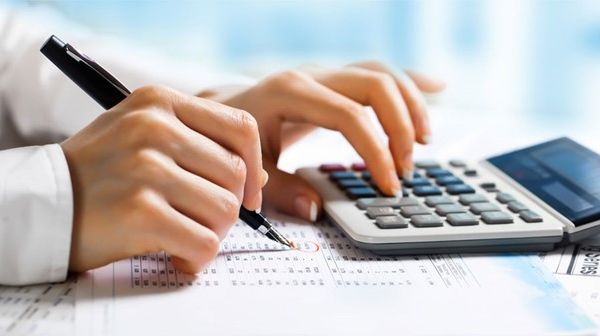

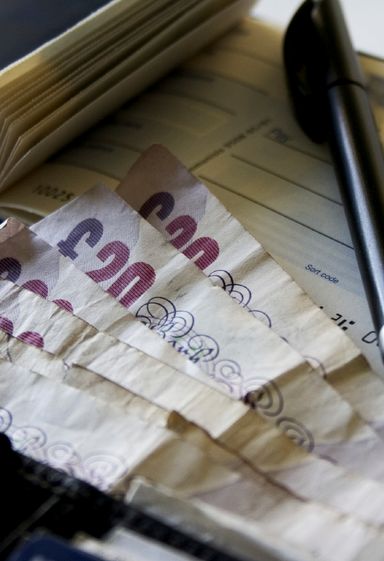
Budget 2021: State of the economy and public finances
- Inflation in September was 3.1% and is likely to rise to average 4% over next year, Office for Budget Responsibility (OBR) says
- UK economy forecast to return to pre-Covid levels by 2022
- Annual growth set to rebound by 6.5% this year, followed by 6% in 2022
- Unemployment expected to peak at 5.2% next year, lower than 11.9% previously predicted
- Wages have grown in real terms by 3.4% since February 2020
- Borrowing as a percentage of GDP is forecast to fall from 7.9% this year to 3.3% next year
- Borrowing as a percentage of GDP will then fall in the following four years to 1.5%
- Foreign aid spending projected to return to 0.7% of GDP by 2024-25 est.

Budget 2021: Government spending
- Whitehall departments to receive rise in overall spending, totalling £150bn over the course of this Parliament
- Funding will rise by an average of £4.6bn for Scottish Government, £2.5bn for Welsh Government, and £1.6bn for Northern Ireland Executive
- Levelling Up Fund will mean £1.7bn invested in local areas across the UK
- Government backing projects in Aberdeen, Bury, Burnley, Lewes, Clwyd South, Stoke-on-Trent, Ashton under Lyne, Doncaster, South Leicester, Sunderland and West Leeds
- Extra £2.2bn for courts, prisons and probation services, including funding to clear the courts backlog
- Tax relief for museums and galleries will be extended for two years, to March 2024
- Core science funding to rise to £5.9bn a year by 2024-25
- £6bn of funding to help tackle NHS backlogs
- £7bn for transport projects in areas including Greater Manchester, the West Midlands and South Yorkshire
Budget 2021: Children and education
- Schools to get an extra £4.7bn by 2024-25
- There will be nearly £2bn of new funding to help schools and colleges to recover from the pandemic
- Schools funding to return to 2010 levels in real terms - an equivalent per pupil cash increase of more than £1,500
- £300m will be spent on a "Start for Life" parenting programmes, with an additional £170m by 2024-25 promised for childcare
- A UK-wide numeracy programme will be set-up to help improve basic maths skills among adults





Budget 2021: Air travel
- Flights between airports in the UK nations will be subject to a new lower rate of Air Passenger Duty from April 2023
- Financial support for English airports to be extended for a further six months
- From April 2023, new ultra long haul band in Air Passenger Duty for flights of over 5,500 miles introduced
Budget 2021: Alcohol
- Planned rise in the duty on spirits, wine, cider and beer cancelled
- Simplification of alcohol duties will see the number of rates drop from 15 to six
- Stronger red wines, fortified wines, and high-strength ciders will see a small increase in their rates

- Rates on many lower alcohol drinks including rose wine, fruit ciders, liqueurs, lower strength beers and wines to fall
- All sparkling wines to pay same duty as still wines of equivalent strength
- Lower duty on draught beer and cider from containers over 40 litres will cut the rate by 5%
Budget 2021: Housing
- £24bn earmarked for housing: £11.5bn for up to 180,000 affordable homes, with brownfield sites targeted for development
- 4% levy will be placed on property developers with profits over £25m rate to help create a £5bn fund to remove unsafe cladding
- £640m a year to address rough sleeping and homelessness

Budget 2021: Taxation and wages
- Universal Credit taper rate will be cut by 8% no later than 1 December, bringing it down from 63% to 55% - allowing claimants to keep more of the payment
- Confirmation business rates to be retained and reformed
- A 50% business rates discount for the retail, hospitality, and leisure sectors in England in 2022-23, up to a maximum of £110,000
- Planned rise in fuel duty to be cancelled amid the highest pump prices in eight years
- Consultation on an online sales tax
- National Living Wage to increase next year by 6.6%, to £9.50 an hour

More tax rises on Wednesday?
Over the last year we have learnt that corporation tax will increase in 2023 and that there will be a 1.25% rise in National Insurance Contributions (NICs) from April 2022 paid by employers, employees, self-employed and for those with share dividend income.
Personal allowances have been frozen at £12,570, basic rate at £37,700 and the higher rate at £50,270 until 2026.
Chancellor Rishi Sunak has stated the need to "fix" the nation's finances as the economy emerges from the COVID-19 pandemic, declaring: "Our recovery comes with a cost."
On Wednesday we can expect further tax rises to be announced in the Budget to fund the support given for the vaccine rollout, the Furlough and self-employed support schemes.
So what are the tax planning options available for companies and individuals?
For companies it is all about the most tax efficient way of extracting profits such as dividends verses salary, contributions to pensions and receiving tax efficient benefits. Also important is utilising capital allowances and thinking carefully about the timing of expenditure.
For the self-employed, protective claims for tax credits should be considered if profits fluctuate.
If you are married, options are available to fully utilise personal allowances and ownership of income producing assets such as investments and rental properties.
One crafty way for the Chancellor to bring in extra tax revenue without raising headline tax rates would be to limit some of the generous tax breaks that are currently available. He may therefore consider some of the measures suggested by the Treasury Select Committee, or the Office of Tax Simplification (OTS) last year. The Treasury Select Committee specifically drew attention to the cost of pension tax relief (£41 billion in 2019) and CGT private residence relief (£25 billion) so we can perhaps expect further restrictions to those reliefs. The OTS have carried out a detailed review of both CGT and IHT, so we anticipate changes to those taxes to bring in extra revenue. Something to listen out for is a possible change to the CGT rules when assets are transferred on death. Currently assets such as the family home or the family business are transferred at market value at the date of death without CGT being payable. It has been suggested that instead of market value the assets are transferred at the deceased’s base cost, which might be just £100 in the case of shares in the family company. Although there would be no CGT payable at the time the effect would be to create a large potential CGT bill for the next generation.
When it comes to pensions there are rumours yet again that higher rate relief for contributions into personal pensions may be removed and replaced with flat rate tax relief of say 25%. That would encourage basic rate taxpayers to save more in their pension at the expense of those paying tax at 40% or 45%. Higher rate taxpayers with spare cash should perhaps consider putting more into their pensions before Budget Day.
Personal pension contributions remain tax efficient for all. Company contributions to an employee's pension will attract corporation tax relief and will be free of income tax and national insurance for the employee (up to certain limits). Individuals can claim relief from income tax and national insurance for contributions to personal pension schemes (subject to certain limits).
These are just a few of the options for planning ahead and now is the time to sit down and arrange your affairs to ensure you are as tax efficient as you can be. We would be delighted to work out a plan with you so please contact us.
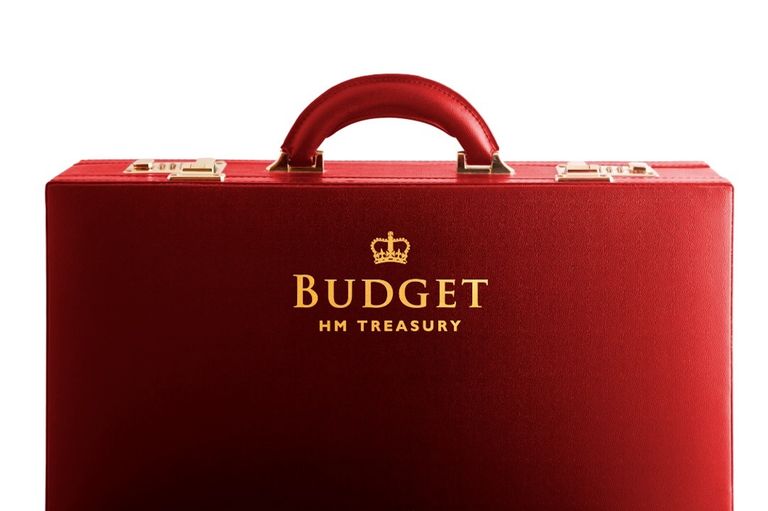
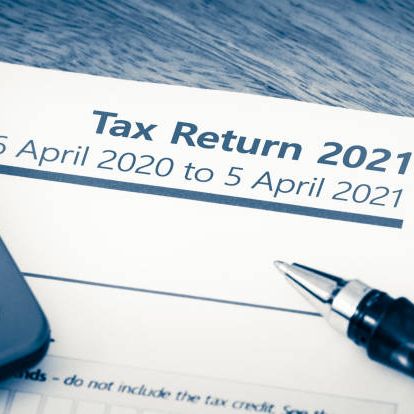
Self-Assessment: Paper submission deadline looming!
HM Revenue and Customs (HMRC) is reminding Self-Assessment tax payers to check that they have the correct information in order to complete their tax return.
This year, tax payers will also have to declare if they received any grants or payments from COVID-19 support schemes up to 5 April 2021 as these are taxable, including:
- Self-Employment Income Support Scheme (SEISS)
- Coronavirus Job Retention Scheme (CJRS)
- Other COVID-19 grants and support payments such as self-isolation payments, local authority grants and those for the Eat Out to Help Out scheme
The deadline for 2020/21 tax returns is:
- 31 October 2021 for those completed on paper forms
- 31 January 2022 for online returns
You can file your return before the January deadline but still have until 31 January 2022 to pay.
Please contact us about helping you file your 2020/21 return before the deadline or if you have any questions about grants or payments received.

VAT for hospitality & tourism sectors
On 8th July 2020 the UK government brought in a reduced VAT rate of 5% for those businesses in the hospitality and tourism sectors.
This rate first applied to the period 15th July 2020 to 12 January 2021. It was then extended to 31st March 2021 and then it was extended further to 30th September 2021. VAT at 5% was chargeable on the following:
- on-premises catering and non-alcoholic drinks sold with catering
- hot takeaway food and drinks
- admissions to attractions including theatres and amusement parks
- hotel and holiday accommodation.
Now, from 1st October 2021 the rate has increased to 12.5%. This is set to last up until 31st March 2022 at which point the rate will revert back to 20%, pre-pandemic rate.
Are your accounting systems up to date and prepared to deal with the changes? You may need to add an extra tax code to your accounting software. If you have to issue a credit note after 1st October for an invoice raised before then you can use the original VAT rate (see guidance from HMRC’s VAT Notice 700, para 18.2.5).
If you have any queries then please contact us here at Erdingsworth Business & Tax Advisors Ltd.
Latest Updates
MTD FOR VAT
The soft-landing period for Making Tax Digital for VAT has ended for VAT periods starting on or after 1 April 2021
From 1 April 2021, your systems must use digital links for any transfer or exchange of data between software programs, products or applications used as functional compatible software, as stipulated in Schedule 11 paragraph 6 and 6A of VAT Act 1994. During the soft-landing period, it was acceptable to copy and paste data for your VAT return. But now it will no longer be considered acceptable by HMRC to copy and paste data for your VAT return. HMRC can charge a penalty of up to £400 for filing a return which is not an electronic submission. This penalty has been extended to include the requirement to file under MTD using compatible software. In relation to returns for prescribed periods which end on or after 31 March 2021, unless there is a reasonable excuse, a person who fails to make a specified return using either MTD or the electronic return system is liable to the following penalty (Value Added Tax Regulations 1995, reg. 25A(15)–(17)):
Annual VAT exclusive turnover Penalty
£22,800,001 and above £400
£5,600,001 to £22,800,000 £300
£100,001 to £5,600,000 £200
£100,000 and under £100
As announced by HM Treasury in March 2021, a new points-based penalties regime is proposed for VAT (including MTD) and income tax self assessments. The changes will apply to VAT customers for accounting periods beginning on or after 1 April 2022, to ITSA customers with business or property income over £10,000 per year (who are required to submit digital quarterly updates through Making Tax Digital (MTD) for ITSA) for accounting periods beginning on or after 6 April 2023 and to all other ITSA taxpayers for accounting periods beginning on or after 6 April 2024.
The regime is as follows: a default is recorded for failure to observe the MTD rules or missing a filing taxpayers then enter a surcharge period, lasting 12 months, if they fault again. Surcharges are calculated as percentage penalties of the VAT due on the latest return. an accumulated points system then applies for further faults if they happen within 12 months (the 12 month surcharge period is reset each time there is a new fault) the points translate into increased percentage surcharges for each accumulated default. They start at 2% and scale up to 15%.
HMRC guidance for MTDfVAT can be found within VAT notice 700/22.
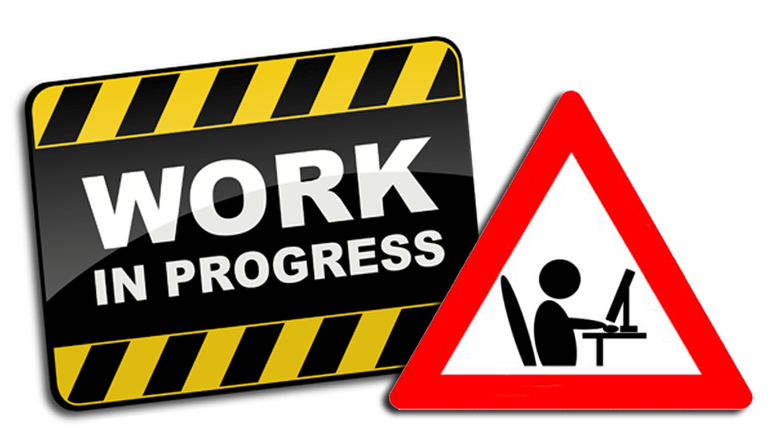
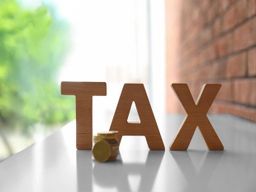
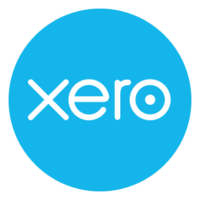

We need your consent to load the translations
We use a third-party service to translate the website content that may collect data about your activity. Please review the details in the privacy policy and accept the service to view the translations.

